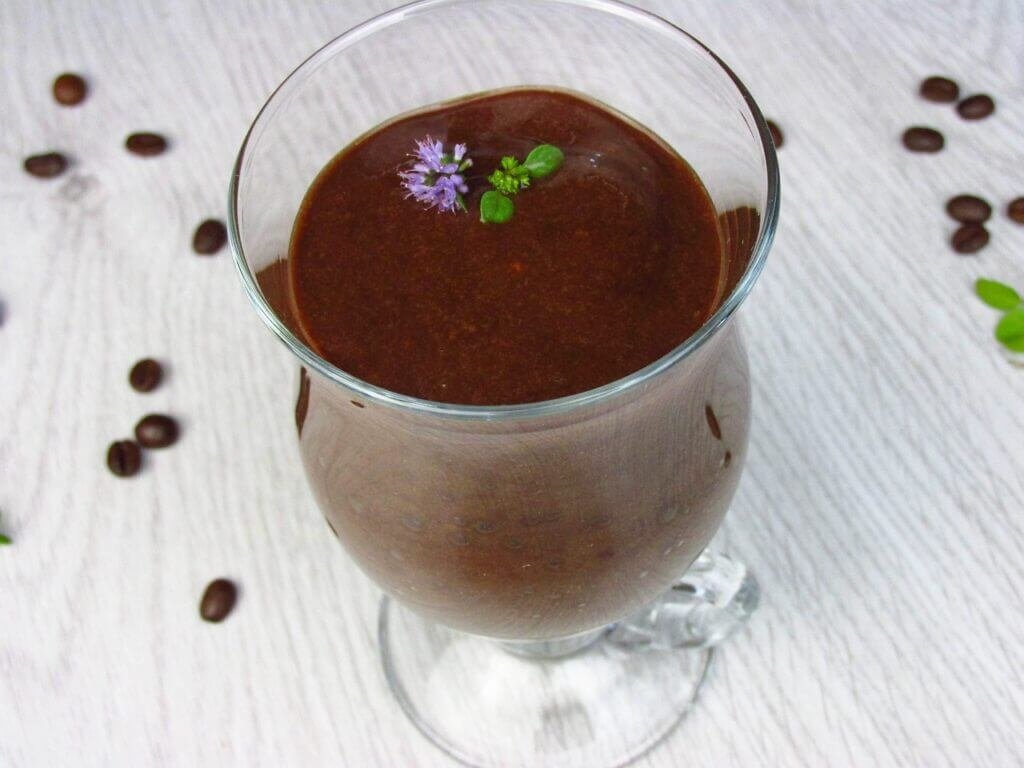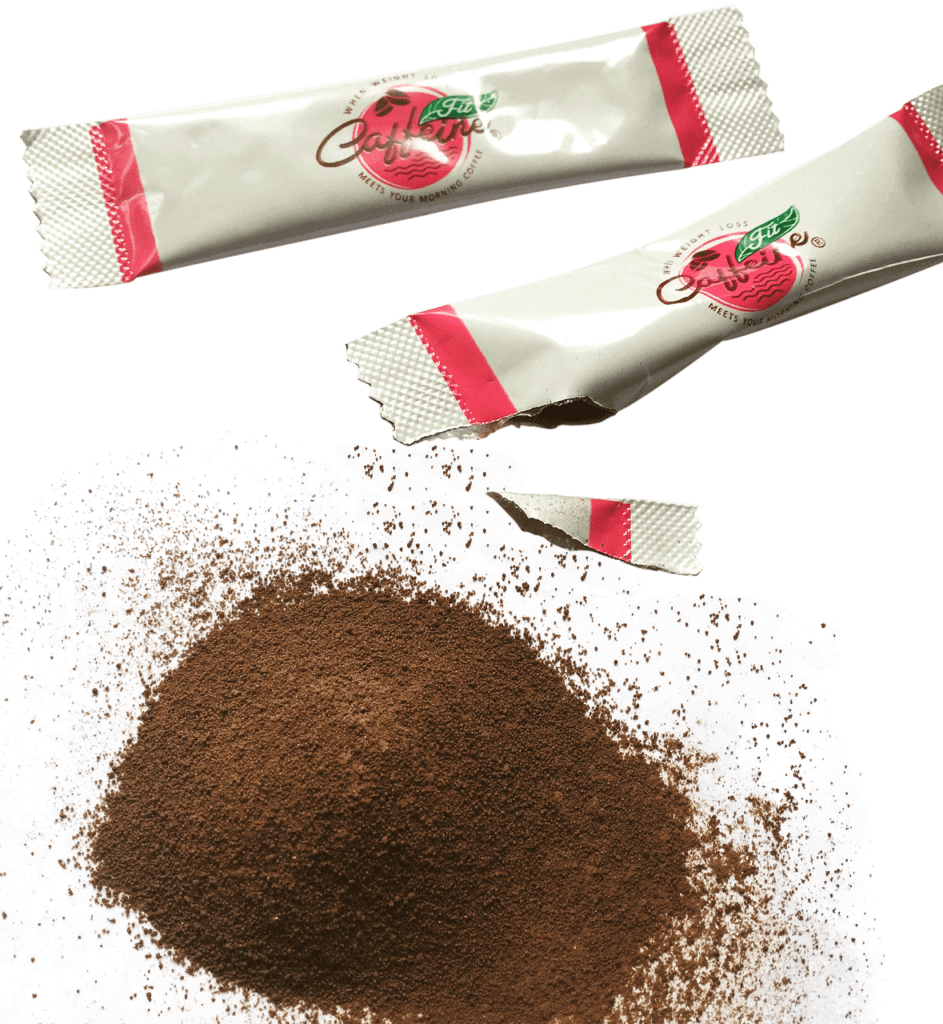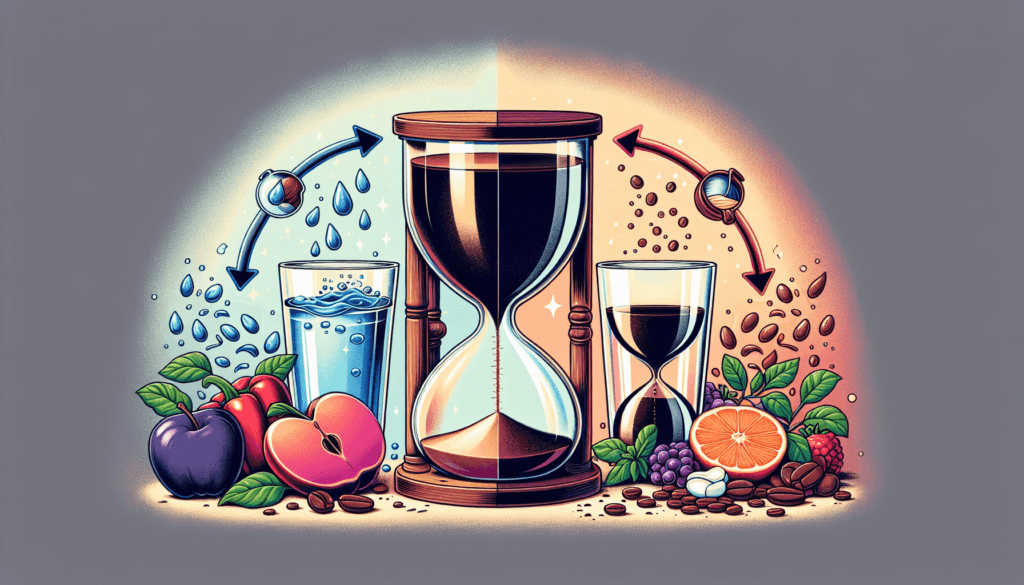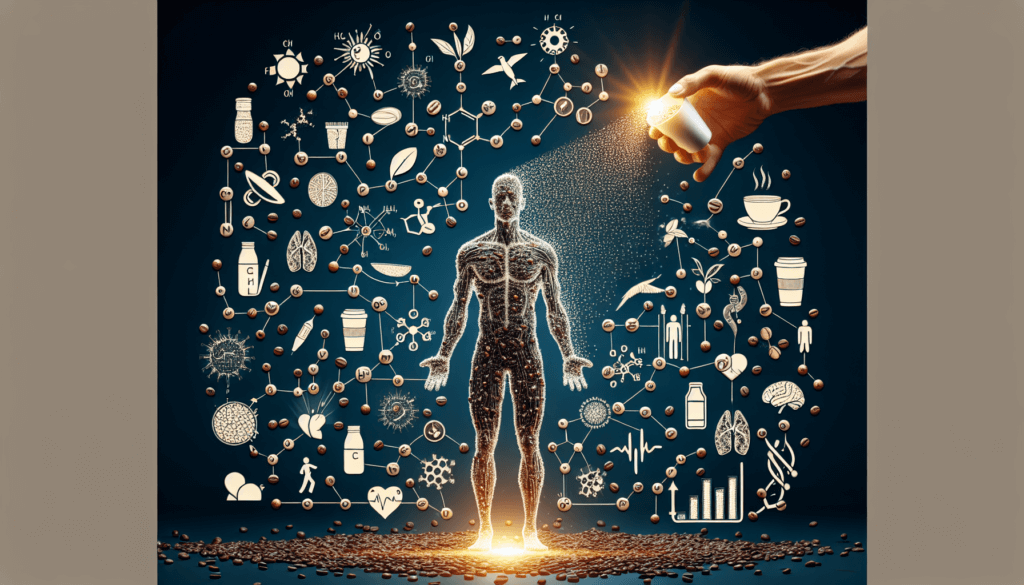Imagine this scenario: you’ve had one cup too many of your favorite caffeinated beverage and now you find yourself feeling restless, jittery, and unable to sleep. We’ve all been there. But fear not, because in this article, we will explore some simple and effective methods to help you flush that caffeine out of your system. So, if you’re ready to bid farewell to those caffeine-induced jitters, stay tuned as we unveil the key steps to getting back to your normal, caffeine-free self.

Caffeine’s Effects on the Body
Caffeine is a popular stimulant that is consumed by millions of people every day. It is found in various foods and beverages, including coffee, tea, energy drinks, and chocolate. This powerful substance has several effects on the body, which can vary depending on individual sensitivity. Understanding how caffeine affects the body is important for those looking to detoxify from its effects.
Stimulant Properties of Caffeine
Caffeine is well-known for its stimulant properties. When consumed, it acts on the central nervous system, providing increased alertness and temporary relief from fatigue. This makes it a popular choice for those needing a quick energy boost. However, excessive consumption of caffeine can lead to negative side effects such as increased heart rate, anxiety, and difficulty in sleeping.
How Caffeine Affects Neurotransmitters
One of the ways caffeine functions as a stimulant is by blocking the action of a neurotransmitter called adenosine. Adenosine is responsible for promoting sleep, and when it binds to its receptors in the brain, it reduces neuronal activity, making us feel tired. Caffeine binds to these adenosine receptors, preventing the normal sleep-inducing effects.
Additionally, caffeine also affects other neurotransmitters such as dopamine and serotonin, which play a role in mood regulation. By increasing the release of dopamine and serotonin, caffeine can enhance feelings of pleasure and improve mood. However, prolonged or excessive caffeine intake can lead to dependence and tolerance, requiring higher doses to achieve the same effects.
The Half-Life of Caffeine
The half-life of caffeine refers to the time it takes for the body to eliminate half of the ingested caffeine. On average, the half-life of caffeine in a healthy adult is around 3 to 5 hours. This means that after 3 to 5 hours, half of the ingested caffeine is metabolized and excreted from the body. However, individual factors such as metabolism and liver function can influence the rate at which caffeine is metabolized.
It is important to note that caffeine can still have residual effects even after its half-life has passed. This is because caffeine can accumulate in the body with repeated consumption throughout the day. Therefore, it may take longer for the body to completely eliminate caffeine, especially in individuals who consume large amounts or have slower metabolism.
Individual Sensitivity to Caffeine
Individual sensitivity to caffeine can vary greatly. Some individuals may be more sensitive to its effects, experiencing increased heart rate, jitters, and difficulty sleeping even with small amounts of caffeine, while others may be able to tolerate higher doses without experiencing adverse effects. Understanding your own sensitivity to caffeine is crucial when considering a caffeine detox.
Factors such as age, body weight, and overall health can influence individual sensitivity to caffeine. Women may also be more sensitive to the effects of caffeine due to differences in estrogen levels and the way their bodies metabolize the substance. It is important to listen to your body and pay attention to how caffeine affects you personally.
Natural Ways to Flush Caffeine
If you’re looking to flush caffeine out of your system, there are several natural methods that can aid in the detoxification process. These methods focus on promoting hydration, supporting the body’s natural detox mechanisms, and promoting overall well-being.
Drink Plenty of Water
Staying hydrated is crucial when trying to flush caffeine out of your system. Water helps to flush out toxins and supports the body’s natural detoxification processes. Aim to drink at least 8 glasses of water per day, and increase your intake if you are engaging in physical activity or live in a hot climate.
Consume Fiber-Rich Foods
Fiber plays a key role in the elimination of toxins from the body, including caffeine. It helps to promote regular bowel movements and prevent constipation, which can aid in the removal of caffeine from the digestive system. Increase your intake of fiber-rich foods such as fruits, vegetables, whole grains, and legumes.
Eat Antioxidant-Rich Foods
Antioxidants are compounds that help to neutralize harmful free radicals in the body. They also play a role in supporting liver function, which is essential for caffeine detoxification. Include antioxidant-rich foods in your diet, such as berries, dark leafy greens, nuts, and seeds.
Exercise Regularly
Regular exercise not only helps to improve overall health and well-being but also supports the body’s natural detoxification processes. Physical activity increases circulation, which can aid in the elimination of caffeine and other toxins from the body. Aim for at least 30 minutes of moderate-intensity exercise most days of the week.
Get Enough Sleep
Quality sleep is essential for the body to restore and repair itself. It is during sleep that the body undergoes detoxification processes, including the elimination of caffeine. Aim for 7-9 hours of sleep per night to support your body’s natural detoxification efforts.

Hydration and Caffeine Detoxification
When it comes to detoxifying from caffeine, hydration plays a crucial role. Proper hydration supports the body’s natural detoxification processes and can aid in the elimination of caffeine from the system.
Importance of Hydration in Caffeine Elimination
Drinking enough water is essential when detoxifying from caffeine. Water helps to flush out toxins and byproducts of caffeine metabolism, promoting their elimination through urine. It also helps to keep the body hydrated, which is important for overall health and well-being.
How Water Supports Caffeine Detox
Water supports caffeine detoxification by diluting the concentration of caffeine in the body. When you drink water, it helps to flush out caffeine and its metabolites, reducing their presence in the bloodstream. This can help to alleviate some of the side effects associated with caffeine consumption.
Tips for Staying Hydrated
To stay adequately hydrated during a caffeine detox, it is important to drink water throughout the day. Aim for at least 8 glasses of water per day, and increase your intake if you engage in physical activity or live in a hot climate. To make hydration more enjoyable, flavor your water with fresh fruits or herbs, or try herbal teas and infusions.
Dietary Choices for Caffeine Detox
In addition to staying hydrated, making specific dietary choices can aid in caffeine detoxification. Including foods that support the body’s natural detoxification processes and minimizing caffeine intake through diet can promote a successful caffeine detox.
The Role of Fiber in Eliminating Caffeine
Fiber plays a crucial role in the elimination of caffeine from the body. It helps to promote regular bowel movements, prevent constipation, and aid in the removal of caffeine from the digestive system. Increasing your fiber intake can support the detoxification process.
Foods High in Fiber
To increase your fiber intake during a caffeine detox, include foods such as fruits, vegetables, whole grains, legumes, and nuts in your diet. These foods are not only rich in fiber but also provide essential vitamins, minerals, and antioxidants that support overall health.
Benefits of Antioxidant-Rich Foods
Antioxidants are compounds that help to neutralize harmful free radicals in the body. They also play a role in supporting liver function, which is essential for caffeine detoxification. Including antioxidant-rich foods in your diet can provide added support during the detox process.
Recommended Antioxidant Sources
To boost your antioxidant intake, incorporate foods such as berries, dark leafy greens, nuts, seeds, and green tea into your diet. These foods are rich in antioxidants and provide a range of health benefits.
Limiting Caffeine Intake through Diet
In addition to supporting detoxification through dietary choices, it is also important to limit caffeine intake through diet. Avoid or minimize the consumption of foods and beverages that are high in caffeine, such as coffee, tea, energy drinks, and chocolate. Instead, opt for decaffeinated alternatives or herbal beverages.

Lifestyle Changes for Caffeine Detox
In addition to dietary choices, making lifestyle changes can support caffeine detoxification. Incorporating regular physical activity, prioritizing rest and recovery, and improving sleep quality can all contribute to a successful caffeine detox.
Exercise and Caffeine Elimination
Regular exercise is not only beneficial for overall health but can also aid in the elimination of caffeine from the body. Physical activity increases circulation, which can help to flush out caffeine and its metabolites through sweat and increased urination.
Benefits of Regular Physical Activity
Engaging in regular physical activity has numerous benefits for the body. It can help to reduce stress, improve mood, increase energy levels, and support overall detoxification processes. Aim for at least 30 minutes of moderate-intensity exercise most days of the week, such as brisk walking, cycling, swimming, or dancing.
Types of Exercise to Aid Caffeine Detox
To specifically aid in caffeine detoxification, consider incorporating exercises that promote sweating, such as high-intensity interval training (HIIT), hot yoga, or sauna sessions. These activities can help to release toxins, including caffeine, through the skin.
Balancing Rest and Recovery
While regular exercise is important, it is equally crucial to prioritize rest and recovery. Overexertion and lack of proper rest can hinder the body’s natural detoxification processes. Make sure to schedule rest days and incorporate activities such as stretching, meditation, and relaxation techniques into your routine.
Improving Sleep Quality
Quality sleep is essential for the body to restore and repair itself. During sleep, the body undergoes detoxification processes, including the elimination of caffeine. To improve sleep quality during a caffeine detox, establish a regular sleep schedule, create a calming bedtime routine, and create a sleep-friendly environment.
Drinking Herbal and Decaffeinated Beverages
During a caffeine detox, opting for herbal and decaffeinated beverages can help to satisfy cravings while avoiding the stimulating effects of caffeine.
Herbal Tea Benefits for Caffeine Detox
Herbal teas are a caffeine-free alternative that can provide various benefits during a caffeine detox. They are often rich in antioxidants, vitamins, and minerals, promoting overall health and well-being. Some herbal teas, such as chamomile, peppermint, and ginger, have calming and soothing properties that can help to relax the body and support sleep.
Decaffeinated Coffee and Tea Options
If you still crave the taste of coffee or tea during a caffeine detox, there are decaffeinated alternatives available. Decaffeinated coffee and tea options can provide a similar flavor experience without the stimulating effects of caffeine. However, it is important to check the labels and choose brands that use safe and effective decaffeination methods.
Other Caffeine-Free Beverage Alternatives
In addition to herbal teas and decaffeinated options, there are various other caffeine-free beverages that can be enjoyed during a caffeine detox. These include water, fruit-infused water, herbal infusions, vegetable juices, and coconut water. Experiment with different flavors and combinations to find alternatives that you enjoy.

Supplements and Herbs to Aid Caffeine Detox
Incorporating certain supplements and herbs into your routine can provide additional support during a caffeine detox. However, it is important to consult a healthcare professional before starting any new supplements to ensure they are safe and suitable for you.
Vitamin C for Caffeine Elimination
Vitamin C is a powerful antioxidant that supports the body’s natural detoxification processes. It can help to neutralize free radicals and enhance liver function, aiding in the elimination of caffeine and other toxins from the body. Consider incorporating vitamin C-rich foods or supplements into your routine, such as citrus fruits, berries, and supplements.
Detoxifying Herbs and their Benefits
Several herbs are known for their detoxifying properties and can support caffeine elimination. Milk thistle, dandelion root, and burdock root are commonly used herbs that may help to cleanse and support liver function, aiding in the elimination of caffeine. These herbs are often available as supplements or can be consumed as herbal teas.
Recommended Herbal Supplements
If you are considering herbal supplements to aid in caffeine detoxification, it is important to choose reputable brands and products. Look for supplements that are certified organic, free from additives and contaminants, and sourced from reliable suppliers. Always follow the recommended dosage instructions and consult a healthcare professional if you have any concerns.
Consulting a Healthcare Professional
Before starting any supplements or herbal remedies, it is always best to consult with a healthcare professional. They can offer guidance specific to your individual needs and ensure that any supplements or herbs you choose to incorporate are safe and effective for you.
Gradual Reduction of Caffeine Consumption
One approach to caffeine detoxification is gradually reducing your caffeine intake over time. This method allows the body to adjust slowly and can help to minimize withdrawal symptoms.
Benefits of Slowly Decreasing Caffeine Intake
The gradual reduction of caffeine intake can offer several benefits during a detox. By reducing caffeine consumption slowly, the body can adapt to lower levels of the stimulant without experiencing severe withdrawal symptoms. This approach can also be more sustainable in the long term, as it allows for a gradual transition to lower caffeine levels.
Setting Realistic Reduction Goals
When implementing a gradual reduction strategy, it is important to set realistic goals. Start by identifying how much caffeine you currently consume and gradually decrease your intake over a set period, such as one week or one month. Set achievable goals that align with your individual needs and preferences.
Tracking Caffeine Consumption
To effectively reduce caffeine intake, it can be helpful to track your consumption. Keep a record of the amount and sources of caffeine you consume each day. This can help you identify patterns and make adjustments to meet your reduction goals.
Replacing Caffeinated Beverages with Alternatives
As you gradually reduce caffeine consumption, consider replacing caffeinated beverages with suitable alternatives. This can help to satisfy cravings and provide a similar sensory experience without the stimulating effects of caffeine. Choose decaffeinated options, herbal teas, or other caffeine-free beverages that you enjoy.
Managing Withdrawal Symptoms
Even with a gradual reduction strategy, it is possible to experience some withdrawal symptoms as you decrease caffeine consumption. Common symptoms include headaches, fatigue, irritability, and difficulty concentrating. Be patient with yourself during this process and consider implementing other lifestyle changes, such as getting enough sleep and staying hydrated, to help manage these symptoms.

Time Frame for Caffeine Elimination
The time frame for complete caffeine elimination from the body can vary depending on individual factors and caffeine consumption habits. Understanding the factors affecting caffeine clearance can help in managing caffeine detoxification expectations.
Determining Caffeine’s Half-Life
The half-life of caffeine, which is the time it takes for the body to eliminate half of the ingested caffeine, is typically around 3 to 5 hours. However, it is important to note that caffeine can still have residual effects even after its half-life has passed and can accumulate in the body with repeated consumption throughout the day.
Factors Affecting Caffeine Clearance
Several factors can influence the rate at which caffeine is metabolized and cleared from the body. These include individual metabolism, liver function, age, overall health, and caffeine sensitivity. Individuals with faster metabolism or optimal liver function may eliminate caffeine more quickly than others.
Complete Caffeine Elimination
The complete elimination of caffeine from the body can take longer than the half-life duration, especially in individuals who consume large amounts of caffeine or have slower metabolism. However, by implementing lifestyle changes, staying hydrated, and making dietary choices that support detoxification, you can support your body’s natural caffeine elimination processes.
Seeking Professional Guidance
If you are considering a caffeine detox or have concerns about your caffeine consumption, it may be helpful to seek professional guidance. A healthcare professional can provide specific advice and personalized recommendations based on your individual needs and circumstances.
When to Consult a Healthcare Professional
Consult a healthcare professional if you have any concerns about your caffeine consumption or if you are experiencing severe withdrawal symptoms. They can assess your health history, provide guidance on caffeine detoxification methods, and address any underlying health conditions that may be influenced by caffeine.
Medical Detoxification Methods
In some cases, medical detoxification methods may be necessary for individuals with severe caffeine addiction or dependence. These methods may involve supervised withdrawal, counseling, and additional medical support. A healthcare professional can provide comprehensive guidance and determine the most appropriate course of action based on your specific situation.
Specific Advice for Caffeine Sensitivity
If you are highly sensitive to caffeine and experience adverse effects even with small amounts, it is important to discuss this with a healthcare professional. They can help you understand the potential underlying causes of your sensitivity and provide guidance on managing your caffeine intake or exploring alternative options.
Individualized Approach to Caffeine Detox
Every individual is unique, and a one-size-fits-all approach may not be suitable for everyone. It is important to take an individualized approach to caffeine detox, considering factors such as caffeine sensitivity, overall health, and personal preferences. With the guidance of a healthcare professional, you can create a personalized plan that supports your caffeine detoxification goals. Remember to listen to your body and make adjustments as needed throughout the process.


